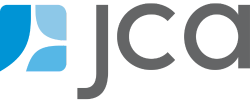Ask Me Anything: The Power of Free

Jamie Alexander
Vice President, Growth and Development
ASK ME ANYTHING QUESTION
“So you say that audiences are irrational, can you give some more examples of how we can use this knowledge to improve our marketing campaigns?”
JAMIE ALEXANDER’S ANSWER
I think you are referring to our blog post called “Our audiences are irrational—it’s not an insult!” in which we discuss irrational thinking as referenced in behavioral economics. We discussed the importance of understanding irrational thinking when crafting marketing campaigns.
The most popular tactic that you can use to appeal to people’s irrational side is called “nudging,” a concept made popular by Richard Thaler and Cass Sunstein’s book called Nudge. But let’s talk about another tactic today, called…
The Power of Free
Behavioral economics tells us that people have a strong emotional reaction to things being free. We feel like we’re getting away with something or gaming the system. Here’s a popular example1 that shows the power of free:
A store was offering Hershey’s Kisses and Lindt Chocolates (a far more expensive chocolate). First, the store offered a Lindt Chocolate for $.15 and a Hershey’s Kiss for $.01. People were more likely to opt for the $.15 Lindt Chocolate since it was such a discount from the regular price. However, when they changed the experiment to make the Lindt Chocolate $.14 and the Hershey’s Kiss free, people were far more likely to choose the free Hershey’s kiss. The cost differential was the same, but people are simply wired to have preference for a free option.
In arts marketing, we can get in trouble by using the power of free. We certainly don’t want to give comps away because they may make people less inclined to pay in the future, but there are more creative uses of it for messaging. Try:
- “Free conversation starter at a party with purchase of ticket”
- “Seat: $10, Catharsis: Free”
- “Complimentary post-show discussion with creative team included with ticket”
Major disclaimer: Be careful when using “free” in your email marketing as it can trigger spam filters. In fact, I hope this email got to you!
We’re happy to answer any other questions about behavioral economics and the arts—we love this field of study! Send us your questions.
1. Dan Ariely, Predictably Irrational, (New York, Harper Perennial, 2010), np.
JCA Arts Marketingcollaborates with cultural organizations to increase revenue, boost attendance and membership, and grow patron loyalty. We provide consulting and software services to hundreds of cultural institutions across multiple genres, including dance, museums, opera, performing arts centers, symphony, and theatre. We can help you achieve your marketing goals.


